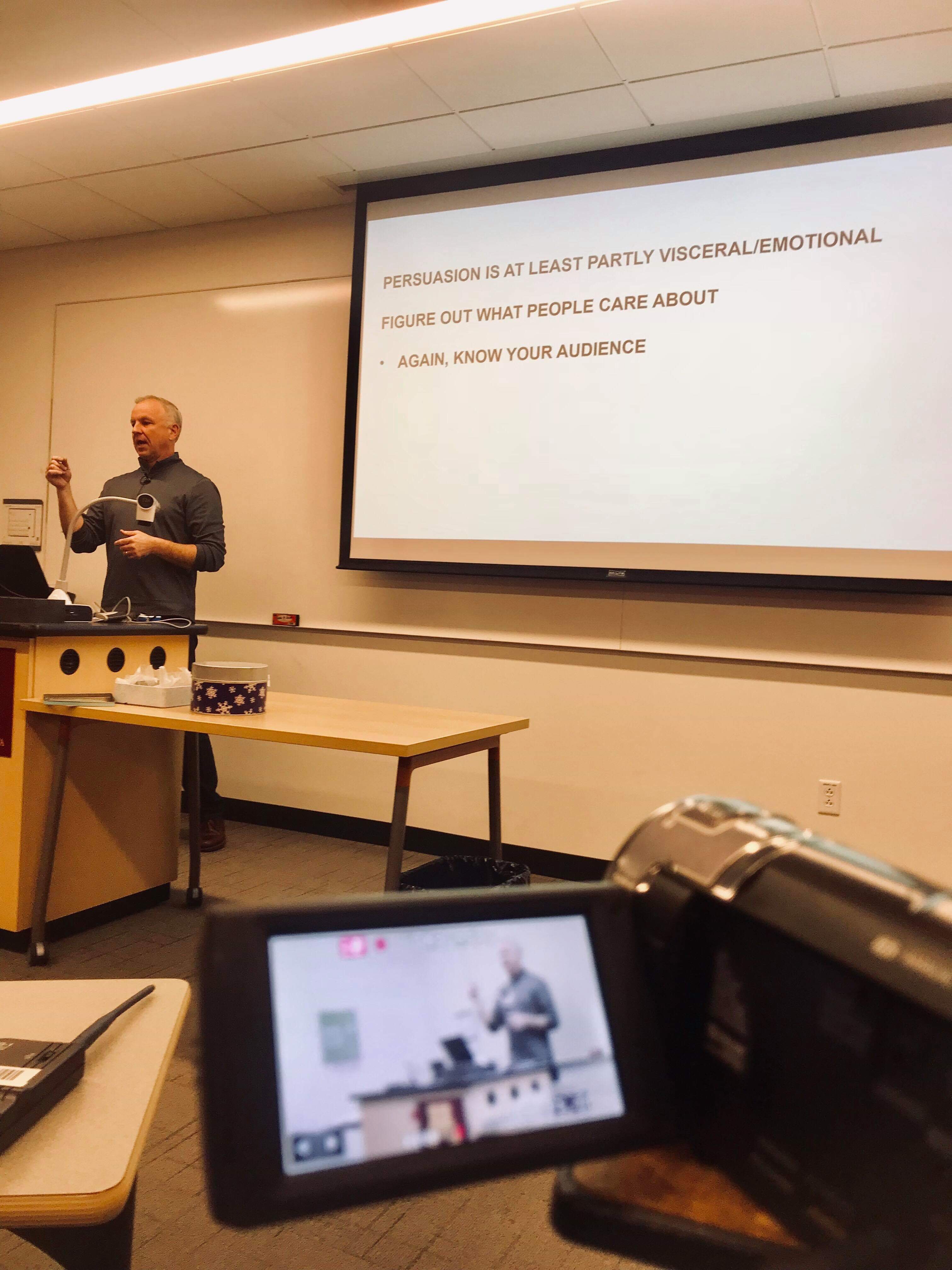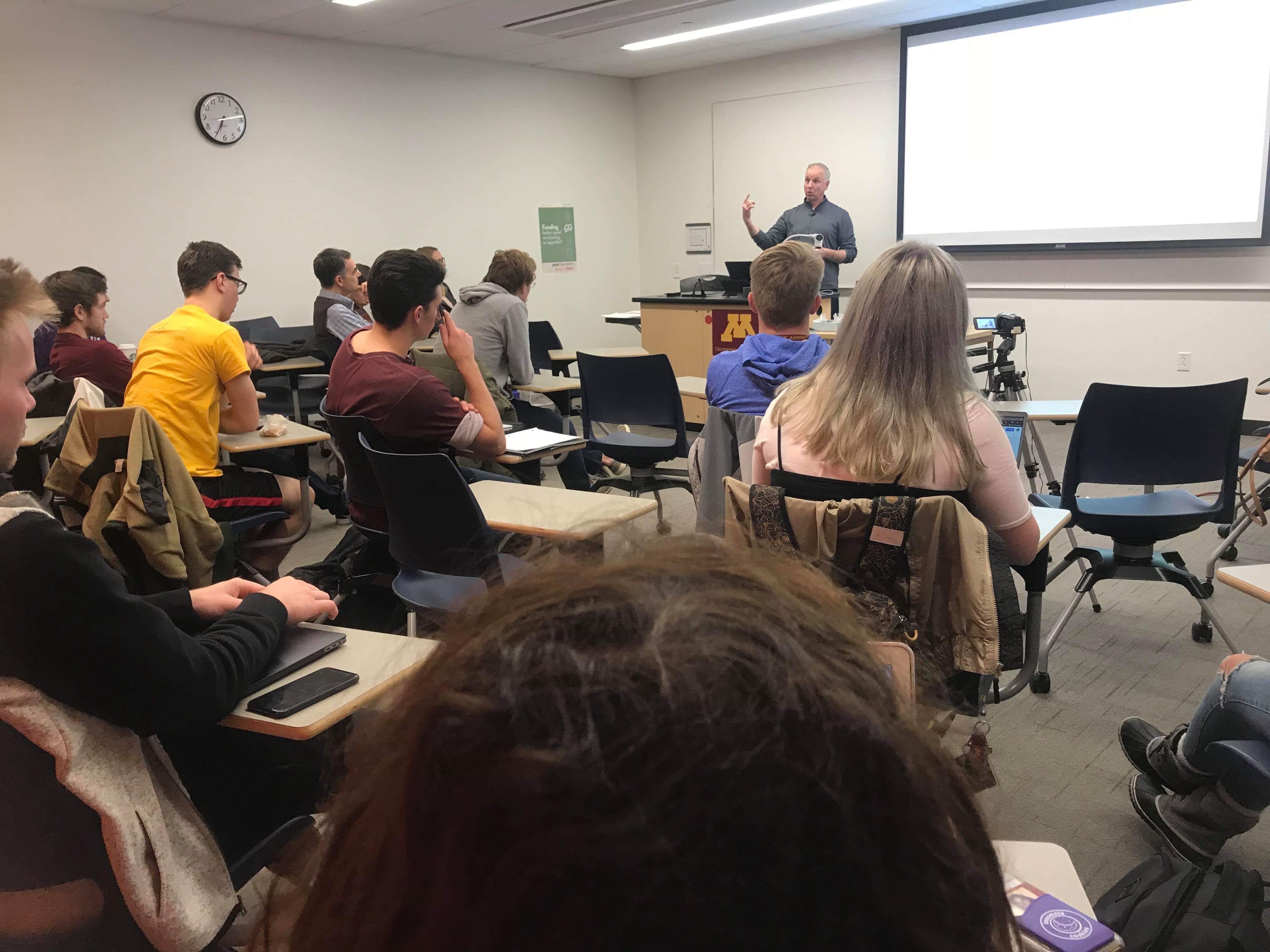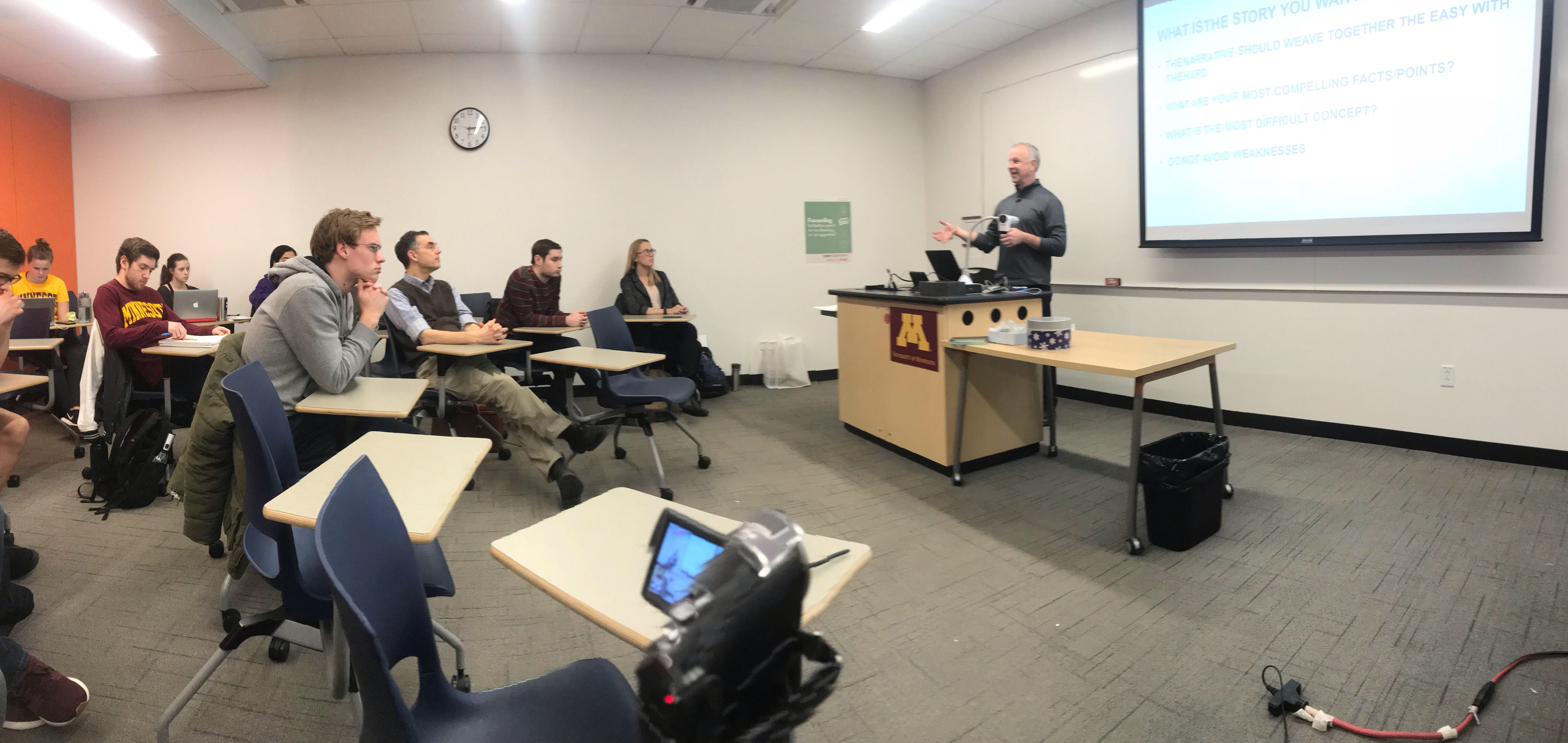Watch the video below, by Porter Larkin, to see a recap of all our guest speakers! Continue reading to hear from our latest guest speaker U.S. Attorney Tim Rank!
“In any given case you are going to have things that are easy to talk about and things that are hard to explain.” – U.S. Attorney Tim Rank

U.S. Attorney Tim Rank’s words ring true, especially in SciCourt where basic knowledge of our case is combined with heavy technical research. Luckily, Rank had some advice for the Legal Team on how to handle important points that are hard to explain specifically in their opening statements:
- Weave the easy points with the hard ones
- Stick to the most compelling facts/points
- Don’t avoid weakness
- Talk about your weakness in the best way possible and make the jury see it the way you want them to
- Address them so it doesn't look like you are hiding it

The students definitely took Rank’s advice to heart. “As a Legal Team member, it was very useful to hear how he prepares and crafts an opening statement, and how to convince a jury,” commented Grace Lundgren. Rank also had some advice for the Science Team on how they can better explain difficult evidence:
- Explain it to people over and over:
- In your life
- Inside and outside your discipline
- With varying education levels
- With no or minimal preexisting knowledge of the subject matter
Overall, Rank’s advice was to know your subject matter as well as anyone, but be able to explain it to a child. “People who know something really, really well are able to explain it to anyone on any level,” said Rank. Although being able to explain things to the jury is important, in some ways it is only half the battle. Attorneys (Legal Team) and expert witnesses (Science Team) must also be persuasive.
According to Rank, variation in tone and media are critical to engagement and persuasion. People learn in different ways (visual, audio, etc.) so we have to teach them using a variety of methods. Sometimes, more media can make an argument more effective. Luke Diamond, a Media Team member, asked about the ethics behind this method of persuasion.
“One person winning the trial because they had a better graphic artist … doesn’t that seem a little unfair?” Rank responded: “It’s all a method of persuasion. Like one lawyer being better at speaking. It’s all about persuasion.”

With Rank’s advice still ringing in our ears, we got to work on the next stage of SciCourt. The Science Team finished reviewing their evidence, and the Legal Team got to work deciding what evidence they want to contest in front of a judge in the pretrial evidence review. After the Legal Team decided, the Science Team began creating the presentations to argue why the evidence they collected should be used in court. How will this battle turn out? Find out next week.